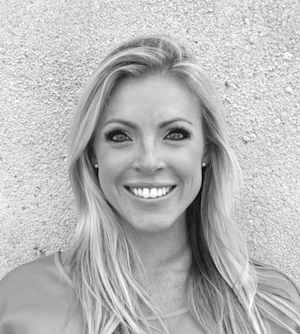How to Support the Well-Being of New Pros
By Mark Mohammadpour, APR, Fellow PRSA and Elizabeth Candello, Ph.D.
July-August 2020
To ensure continued growth in the PR profession, encouraging the well-being of new practitioners should be a priority. This is the key finding of our recent study (pending peer review), “Finding Well-being Among Public Relations Practitioners.”
According to the “2019 Most Stressful Jobs” list from career website CareerCast.com, “public relations executive” ranks eighth among the most stressful professions, which includes jobs such as firefighter and airline pilot.
The COVID-19 crisis has only compounded that stress for PR pros. In recent months, many of us have spent countless hours crafting messages, working with stakeholders and engaging with our publics to help our communities.
We will live with the pandemic’s impact in the coming months and years, but we also need to think now about tomorrow’s PR leaders who are graduating and preparing to enter the workforce.
To examine their well-being, we recently surveyed 204 PR practitioners with questions about their current mental states, whether they’re incorporating physical activity into their workdays, believe that their direct managers are advocates for their health and wellness, and other relevant topics.
Some notable data points emerged from the survey. When asked to rank in order of priority how they would spend an extra hour of their day to take care of their health and well-being, a majority of respondents said they would exercise, followed by sleep, read, prepare meals, socialize and pamper themselves.
Only 20 percent said they take all of their paid time off from work and sick time every year. More than a third said they do not view their personal and work lives as being separate. Both of these results indicate that PR practitioners are not prioritizing their own health.
Our research finds that the more years of work experience and the greater the resources PR practitioners have, the more engaged they will be in their work.
This study extends insight into the work experience of practitioners as a predictor of work engagement. The findings suggest that the profession could incorporate the following: nurture young practitioners as they enter the workforce; standardize job resources so practitioners working in corporate and nonprofit sectors are equipped to passionately perform their work; and continue to use social support to keep new PR practitioners excited about the profession.
Previous research has also shown that an organization’s effectiveness is determined by the mental and physical well-being of its employees. But wellness resources available to professionals in each phase of their careers are sometimes unevenly distributed, and entry-level professionals might find it more difficult to navigate such resources.
Based on our research, here are some recommendations for how new PR professionals can protect their own health and well-being, and thus thrive in their communications careers:
Ask about wellness before taking the job.
College students and new practitioners looking for positions in the PR profession should learn as much as possible about a job’s working conditions and expectations before accepting an offer of employment. Health benefits such as free gym memberships and access to mobile applications only take people so far. We recommend that job candidates ask a prospective employer’s HR department, hiring manager and/or peers the following three questions:
- Will I be expected to respond to emails or text messages outside of work hours?
- Will I be expected to work from home or remotely?
- Will I be expected to check email and be available while on vacation?
Connect with mentors.
New PR professionals are also advised to ask mentors in the field how they make their own health and wellness a priority. How do mentors schedule breaks during their work days and make time to care for their health and well-being? How do they reduce stress? What advice would mentors give their younger selves, if they could?
When you start your job, ask the human resources department or hiring manager to help you find a peer you can immediately connect with and talk to regularly. Peer mentors help new professionals build social support and confidence.
Make time for physical activity.
Given the likelihood of working long hours, as PR professionals, we all need to make time to rest our minds and activate our bodies. Sometimes we can do this while we work, such as by using stand-up desks and holding “walk and talk” meetings with our colleagues.
However, new professionals also need to block out time on their calendars for physical activity and let their co-workers know when they will be unavailable. Corporate wellness programs and interventions have an opportunity to help new PR pros achieve these goals.
Stay abreast of current realities
Developing new PR professionals — the people who are instrumental in our day-to-day, tactical work — is not something that happens by itself. Rather, cultivating new PR practitioners is an interactive, dynamic process that involves the entirety of our organizations, including managers. But the higher we rise within an organization, the harder it is to remember how we felt when we started our careers.
Leaders must stay abreast of current realities for their new employees, while also examining their own assumptions about those new hires — that they understand current strategies, for example.
When leaders examine their own assumptions, they break the silence between themselves and their new employees. And the dialogue that results reduces stress for everyone, leading to a healthier workplace.
To review the paper, please contact the authors at elizabeth.candello@wsu.edu and mark@chasingthesunpdx.com.
photo credit: getty images




